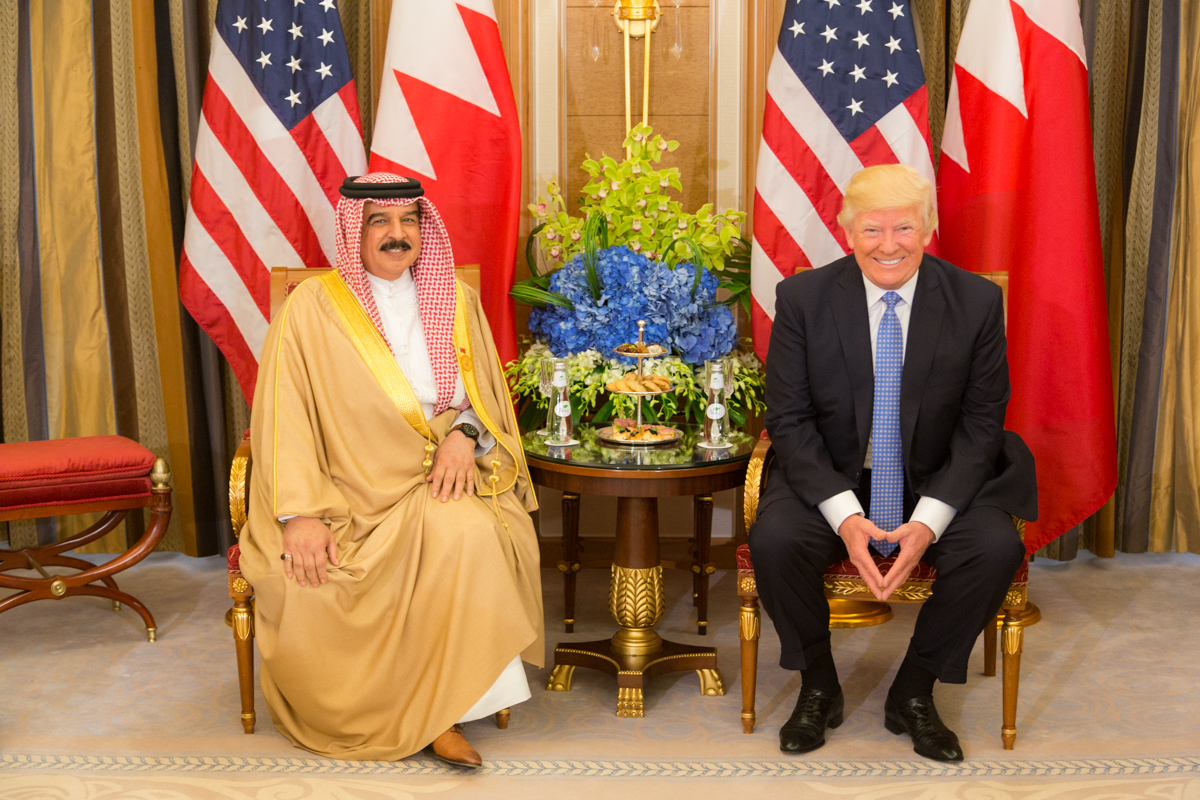In October 2018, Saudi Arabian operatives killed a Saudi journalist, Jamal Khashoggi, at the country’s consulate in Istanbul. Khashoggi was a prominent critic of the Saudi regime, but his murder still shocked the greater international community. The Saudi government has never endorsed the assassination of journalists. His death garnered such widespread international attention that even President Donald Trump, whose foreign policy is characterized by a laissez-fare attitude toward human rights violations, initiated a public response.
However, if President Trump was genuinely interested in punishing regimes for their violent crackdowns on dissent, he would have already addressed lesser-known but equally concerning events unfolding just off the Arabian Peninsula in the Kingdom of Bahrain. The kingdom’s royal family exercises authoritarian power, representing only the interests of an elite minority group who hold the majority of positions of power in the kingdom: the Sunnis. The Shi’a majority, on the other hand, has limited social mobility and faces routine discrimination. Shi’a clerics are often arbitrarily detained and prohibited from performing religious services or visiting certain mosques.
Bahrain’s Shi’a majority has continuously protested against the monarchical regime since the outbreak of the Arab Spring in late 2010. Bahraini law enforcement responds to these protests with brutal crackdowns on free speech: Protesters are frequently incarcerated without due process, and allegations of torture number in the hundreds. Meanwhile, prominent dissidents are often deported, stripped of their citizenship, or sentenced to jail time in mass trials that try hundreds of individuals simultaneously. Altogether, these acts render fair judicial decision-making impossible.
The human rights situation has further deteriorated since the beginning of 2017. In January, Bahrain executed three prisoners who confessed under the duress of torture to killing three policemen in 2014. These executions were the first in the kingdom since 2010. Five months later, law enforcement killed five protesters and detained hundreds at a protest in Diraz––one of the country’s worst crackdowns on protesters since 2011. In June 2017, the government ended any pretense of tolerance for free speech by shutting down the kingdom’s last independent newspaper. In doing so, the government successfully stifled the democratic reform movement in Bahrain and laid the groundwork for further escalation of human rights abuses by eliminating the checks and balances imposed by a free press.
A crucial component of Bahrain’s consolidation of power is its relationship with the United States. One of the most strategically important American naval bases is located in Bahrain. The US has a strong incentive to encourage the continuity of government: If the current regime were to collapse, the US would have to nurture a relationship with a new Bahraini government in order to guarantee continued access to the Persian Gulf. Consequently, the countries share a symbiotic relationship, wherein Bahrain provides the US access to the Persian Gulf, and the US offers Bahrain the foreign support it needs to weather domestic instability and maintain strong defense capabilities.
Although the relationship between Bahrain and the US is interdependent, it is simultaneously asymmetric. The US is a global superpower; Bahrain is barely visible on a map. The US relies on Bahrain for a massive naval fleet that could be relocated if necessary; however, the Bahraini regime depends on this crucial alliance for its survival.
Because the US–Bahrain relationship is heavily skewed, the US is able to strongly influence Bahraini policy. In fact, the chronology of Bahrain’s deteriorating human rights record demonstrates that President Trump’s behavior toward the kingdom has exacerbated the violence against local protesters. Rather than incentivizing the Bahraini government to end its continued abuse of power, the US has enabled it. Altogether, President Trump has led an approach defined by the US turning a blind eye to increasingly severe crackdowns on free speech.
An operative element of the US-Bahrain relationship is the sale of American F-16 jets to Bahrain. In March 2017, President Trump inked a contract selling the jets to Bahrain, disregarding an Obama-era freeze on the deal until human rights conditions improved. In doing so, he eliminated leverage that could have pressured Bahrain to end its crackdown on dissent.
It is no coincidence that Bahrain’s first three executions since 2010 were carried out days before President Trump’s inauguration, or that the country’s crackdown on protesters came two days after President Trump assured Bahrain there would be “no strain” in relations with his administration.
Admittedly, the increased crackdown on dissent is not wholly tied to US attitudes. Conditions in Bahrain began to deteriorate in mid-2016, which prompted international concern and the Obama administration’s decision to halt the F-16 deal in the first place. However, President Trump’s disregard for human rights in Bahrain has allowed further repression in the state. Before President Trump’s election, no dissidents or prisoners had been killed in Bahrain since 2014; since his inauguration in 2017, at least eight killings have been recorded.
Bahrain’s other foreign allies, who tend to completely ignore the crackdowns, also share the responsibility for responding to this situation. The country’s other key Western ally, the United Kingdom, also opened a naval base in Bahrain in April, and has remained silent on the issue of human rights in the country.
This tacit approval of dissident abuse in Bahrain is unacceptable. The US and the UK should use their considerable influence in Bahrain to rally against the cruel, corrupt, and unnecessary treatment of protesters who demand the democratic freedoms Western nations claim to hold so dear.
Photo: “President Trump Meets With Bahrain’s King Hamed bin Issa“
